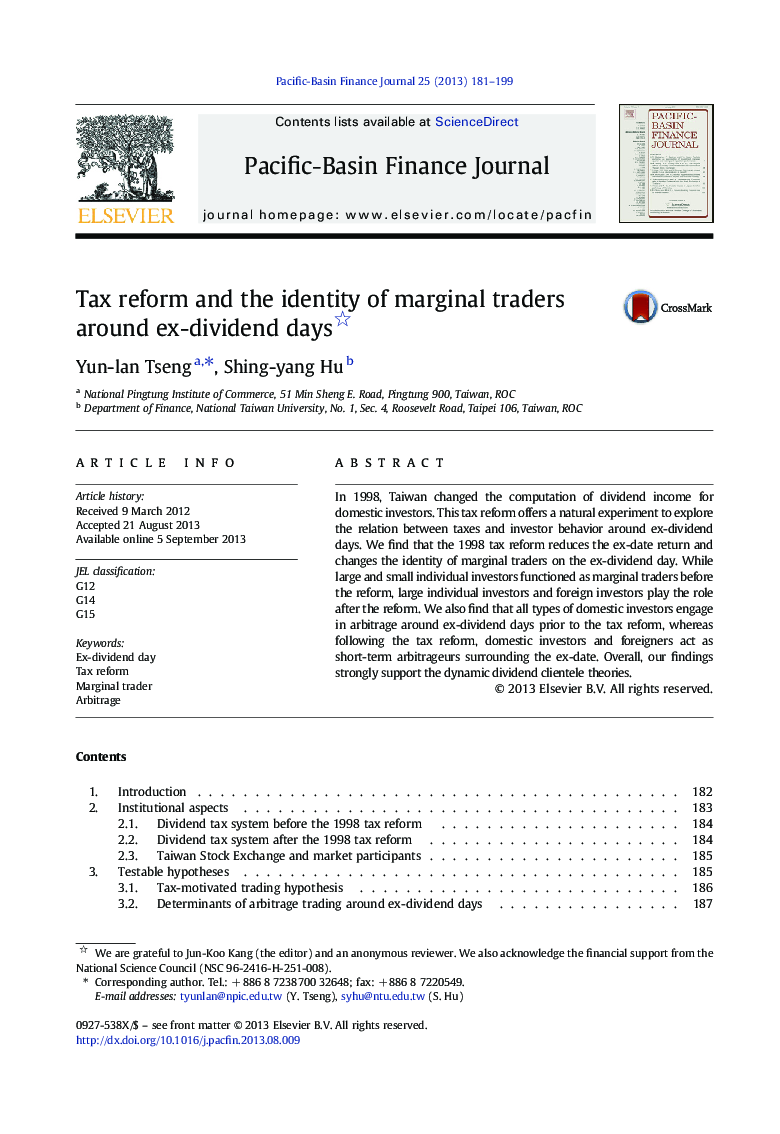| Article ID | Journal | Published Year | Pages | File Type |
|---|---|---|---|---|
| 975409 | Pacific-Basin Finance Journal | 2013 | 19 Pages |
•We test the relation between a tax code change and the behavior of investors around ex-dividend days.•The tax reform reduces the unbalanced trades of domestic investors on the ex-date.•The 1998 tax reform changes the identity of marginal traders on the ex-date.•All types of domestic investors engage in arbitrage around ex-dividend days before the tax reform.•Domestic investors and foreigners act as arbitrageurs around ex-dividend days after the tax reform.
In 1998, Taiwan changed the computation of dividend income for domestic investors. This tax reform offers a natural experiment to explore the relation between taxes and investor behavior around ex-dividend days. We find that the 1998 tax reform reduces the ex-date return and changes the identity of marginal traders on the ex-dividend day. While large and small individual investors functioned as marginal traders before the reform, large individual investors and foreign investors play the role after the reform. We also find that all types of domestic investors engage in arbitrage around ex-dividend days prior to the tax reform, whereas following the tax reform, domestic investors and foreigners act as short-term arbitrageurs surrounding the ex-date. Overall, our findings strongly support the dynamic dividend clientele theories.
